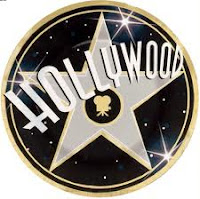
Question: You're a major (major =big) music fan, aren't you?
Daniel Radclilffe: ‘Huge’.
Question: Do you get to go to gigs? (get to = able to, gigs = musical performances)
Dan: Not as much as I'd like to, but I'm seeing the Chilli Peppers (American music band) in Hyde Park. I'm going to that, very excited, because The Pixies (American music band) are supporting.
Question: So when did you come across The Pixies?
Dan: Um... I'm really ‘into’ films, obviously, as well, and I got Total Film (British Film magazine) and there was a compilation of soundtracks, and "Where is my mind?" was on there, because it's the soundtrack to Fight Club (1999 American film with Bradd Pitt and Edward Norton), and so I went out and bought Death to The Pixies: The Greatest Hits.
Speaking Style
Daniel or Dan’s speaking pattern is casual/informal for many reasons but I would like to focus on two expressions. He uses the word ‘Huge’ in his first answer and uses the word ‘into’ in a slang style.
Question: You're a major (major =big) music fan, aren't you?
Dan: Huge
When he uses the word ‘huge’, the meaning is ‘really really big music fan’. Also he shortens his sentence for a faster talking style.
Longer speaking style: “I am a 'huge' music fan.”
The shorter speaking style is used here because to a native English speaker we know there are more questions coming. A detailed answer isn’t necessary. Why? Because the interviewer uses a tag question: …, aren’t you?.
Now when we learn grammar this answer is not usually the best.
Question: You're a major music fan, aren't you?
Answer: Yes, I am/No, I am not.
This is a common drill type question used in language classes to emphasize the grammar point. It is a bit robotic if constantly used in conversation.
In a conversation tag questions are used like an exercise warm up or to get to know someone when talking to them for the first time.
However, even with such a short, simple question, Dan signals he wants to continue talking about music. The answer ‘Huge’ doesn’t follow the yes/no grammar pattern. Instead he answers emphasizing his excitement about music. It doesn‘t sound disjointed to a native speaker because ‘Huge’ refers to the ‘major music fan’ idea of the interviewer’s question. Dan’s natural answer helps link the ideas. His enthusiasm/emphasis allows me to know that this is a good topic for him. This speaking strategy is great for creating continued conversation.
The use of ‘into’ is a casual slang style.
Dan: I'm really ‘into’ films. (to be into something/someone=to like
or love something/someone)
Ex. Same sentence idea - Dan: I really like/love films.
'Into' is such a common word in English but the indirect meaning sometimes tricks us.
You can get some more ideas about how to use 'huge' and 'into' in the next part.
Try out in your daily conversation!
1.Question: You’re a major fan of rock n roll, aren’t you?
Answer: Huge
2.Question: Are you a huge fan of jazz?
Answer: Absolutely, I am really into jazz fusion.
3. Question: Are you a major fan of baseball?
Answer: Huge! I have been into it since my dad took me to my
first game when I was 6 years old.
first game when I was 6 years old.
More Stuff!
Click on the links below for Dan Radcliffe’s music, reading, and film interests mentioned in today's conversation points:
The Chilli Peppers (The Red Hot Chilli Peppers-RHCP) music
The Pixies music
Total Film magazine
Fight Club movie
LINK http://www.imdb.com/title/tt0137523/
Twitter
Facebook
Harry Potter and the Deathly Hallows Trailer Official HD
Connect with Alex here or at
You have read this article asing Inggris /
Celebrity English /
Daniel Radcliffe /
Harry Potter /
Language Learning /
Music /
yabancı İngilizce /
외국인 영어 /
外国人英語
with the title Natural Language from Daniel Radcliffe of Harry Potter: Music. You can bookmark this page URL https://celebrityunitedking.blogspot.com/2011/06/natural-language-from-daniel-radcliffe.html. Thanks!










